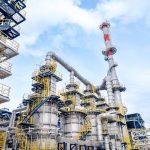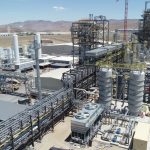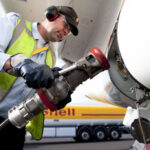Aviation training and flight simulator giant CAE has announced it is the first Canadian aerospace company to become carbon neutral. CAE intends to offset live training fuel emissions, employee’s business air travel and energy other than electricity by funding greenhouse gas reduction projects. Electricity consumption, which amounted to 190,000 MWh in fiscal 2019, will be compensated by buying renewable energy certificates (RECs) that support renewable electricity development. The company says carbon offsetting and RECs are interim measures while new technologies and solutions are being developed to reduce emissions, and will continue to invest in making its full-flight simulators more energy efficient, so allowing its customers worldwide to reduce their own footprint.
CAE first revealed its carbon neutral ambitions late last year. “We wanted to honour our pre-pandemic commitment and up our contribution now – a testament to CAE’s environmental leadership and engagement towards future generations,” said the company’s CEO, Marc Parent.
“This is a bold achievement and we hope that CAE’s commitment in the fight against climate change will inspire other companies to take tangible actions today. We are also working with the industry towards the development of electric aircraft and undertaking other measures to reduce our overall emissions.”
Parent announced the carbon neutral decision in a live virtual Q&A discussion on the environment with employees and their children.
CAE said it would offset emissions by buying RECs in the countries where it operates and funding greenhouse gas (GHG) reduction projects such as wind energy in India and forest preservation in Canada.
According to CAE’s latest CSR report, direct (Scope 1) GHG emissions by the company amounted to 25,213 tCO2e in 2019, with Scope 1 and 2 location-based emissions totalling 87,825 tCO2e and Scope 1 and 2 market-based emissions totalling 80,550 tCO2e.
The Quebec-headquartered company had revenues of $3.3 billion in 2019 and employs 10,000 people at 160 sites and training locations in 35 countries. It trains 220,000 civil and defence crewmembers each year, including 135,000 pilots, and has over 300 airline and major business aircraft customers.
“This is a step in the right direction to ensure a green economic recovery in Quebec,” commented Pierre Fitzgibbon, Quebec Minister of Economy and Innovation. “This achievement demonstrates the real dynamism of our aerospace industry while confirming that Quebec remains a good place to make major investments in the environment and in innovation projects.”
Added Canada’s Minister of Innovation, Science and Industry, Navdeep Bains: “I am pleased to see Canadian companies demonstrating their leadership in the fight against climate change by working towards the green recovery of our aerospace industry.”
Photo: CAE’s Marc Parent discusses carbon neutrality with employees and their children













More News & Features
New initiative formed to accelerate SAF adoption and production in the Pacific Northwest
ICAO releases first-ever growth factor for airlines’ CORSIA offsetting requirements
Airfreight giants DHL Express and FedEx announce big US SAF deals
LanzaJet produces first next generation, ethanol-based SAF at flagship Freedom Pines refinery
US rebukes ICAO for wasting resources on climate financing initiatives and warns against global levies
International airlines face major CORSIA offset costs from 2027, says IBA